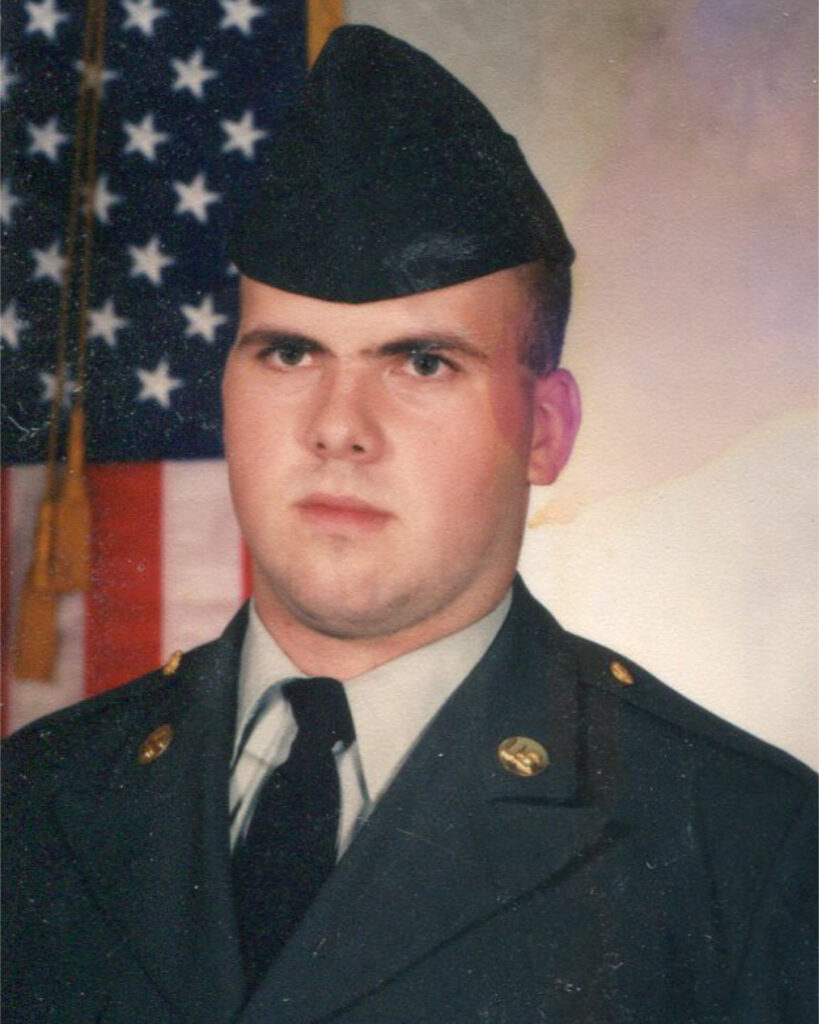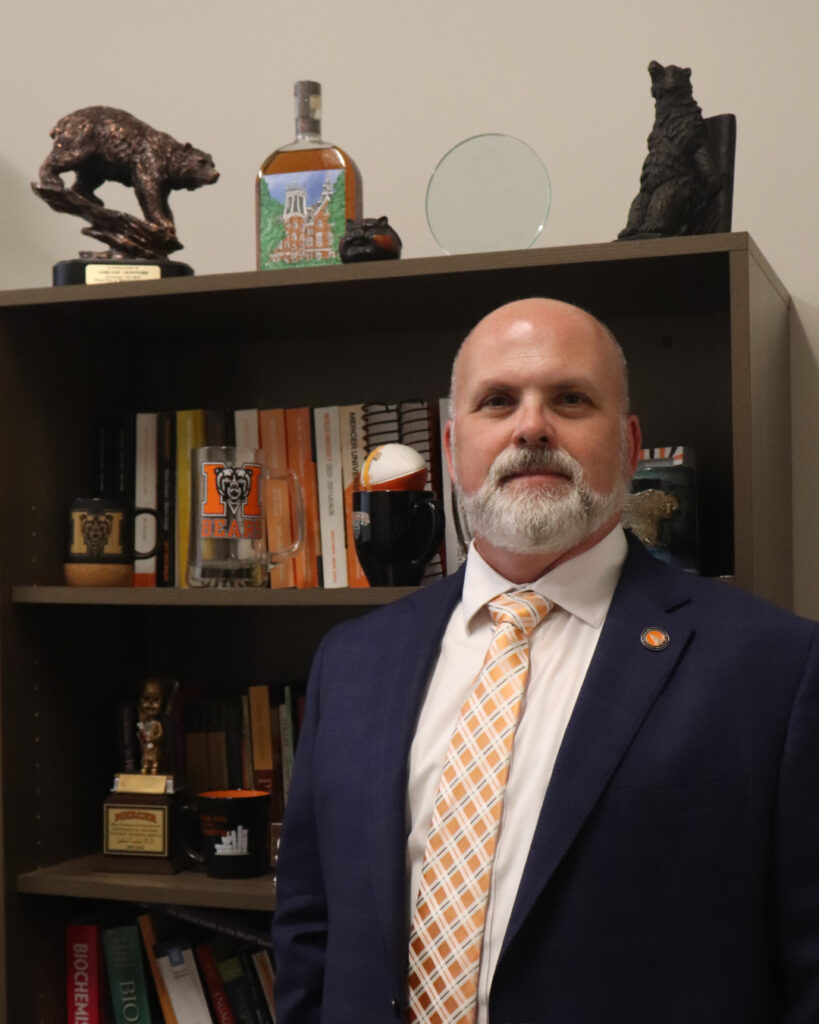Republished with permission from The Mercer Den. You can read the original story here.
Den Editor’s Note: For Veterans Day, The Den interviewed veterans who are now serving as faculty or staff at Mercer University. Three stories featuring those veterans — Michael Junod, Dr. Garland Crawford and Master Sgt. Craig Mattoon — will be published throughout the week. This is the second story.
To many Mercer University students, Dr. Garland Crawford teaches chemistry basics and provides detailed lectures on principles of biochemistry. But prior to his teaching career, the chemistry professor and assistant provost for research served in the military.
Dr. Crawford enlisted in the Army Reserve as a junior in high school. He completed basic training the summer before his senior year, and shortly after he graduated, he applied for medical training with a reserve unit at a university in western Kentucky, he said.
He joined the military because he was unsure what college to attend and thought the Army would provide him with opportunities that he would not have otherwise.
“Through my experiences and enlistments, it opened up the door to an ROTC scholarship, and then once I got that, I was able to look more broadly at schools,” Dr. Crawford said.
His military training and the ROTC scholarship is what brought him to Mercer as an undergraduate student. Mercer also provided additional assistance, which further allowed him to improve his prospects, he said.
In 1997, by the time Dr. Crawford was at the end of his college career, he was commissioned as a second lieutenant in the Army Ordnance Corps. He said he worked four years on active duty, mostly in Germany with the First Armored Division. In 2001, when the option to stay or leave became available, Dr. Crawford said he decided to leave to pursue his graduate degree in biochemistry and fulfill his long-term goal of teaching college students.
“The experiences in the Army were fantastic, but they were largely managerial,” he said.
Dr. Crawford said his primary interest and undergraduate degree was in chemistry, and the jobs he held while in service were fairly removed from the field.
While working in the ordnance branch, he did maintenance jobs and materiel management. More specifically, he said his main focus was in multifunctional logistics that involved him working in repair shops to help fix broken vehicles and discover repair parts, maintaining stock, and tracking items through shipping channels.
Dr. Crawford said he also worked with logistical planning and functions that he found interesting at the time but soon came to realize was not what he wanted to pursue for his career.
He said another reason he stepped away from the military was because of the rapid turnover the Army wanted to see in his skill set. The military wanted to expose him to different skills to increase his knowledge as much as possible and as soon as possible.
“Outside of the training area, I was on duty working with the unit for about 3 1/2 years, and I had about four to five jobs during that time that were direct leadership with platoons, soldiers and some of its staff work, but it was a lot of jumping around,” he said


Dr. Crawford said he was appreciative of the opportunities his military career provided him and the people he met along the way.
“The thing I learned and appreciated the most even from the very start, even when I was in high school, was the chance to be around a diverse and exceptionally engaging group of people,” he said. “People from the outside view the military as a sort of monoculture, but in fact, it pulls people from all across the country, people that are there for a whole range of reasons and backgrounds.”
Dr. Crawford said because the diversity of people he met was so vast, it gave him the ability to truly learn how to work alongside others while appreciating their differences. He said he learned how to motivate people and build ideas together toward a single goal.
“You learn how to take people’s strengths and put those together and build the best team possible,” he said.
He said he learned how to address others’ feelings and thoughts while still working together as a group, which greatly translated into his career as a professor.
“A lot of classroom management relies on a lot of the same skills of just general management,” Dr. Crawford said.
He said he tries to approach his classes through a similar model of management he learned years ago.
Part of his job as a professor is to expose students to the technical field and have them draw parallels with the material. Some students who already are familiar with the subject will bring all their knowledge and skills to an assignment or project, he said, but he also has students who are new to the field, and it’s his job to bring both groups together.
“I try to figure out where I can move the class forward toward learning new material at a pace that’s going to be both good for the students who are already at a good place and for the students that are struggling,” he said.
Dr. Crawford said his experience in Mercer’s ROTC program ultimately helped him feel prepared for his career life afterward. He said learning military leadership placed him in a position where he developed soft skills that help him currently.
“All those experiences, not just ROTC, but at Mercer as a whole, were really good at giving me the tools as I went into much larger and much more diverse organizations,” he said.
He said serving in the military helped him stay organized and helped clarify what career he wanted to pursue.
“It was something that I never really grew up thinking I would do,” he said. “Over the scope of my career, this four-year opportunity that I was able to take advantage of, I learned a lot, but that’s not the thing that defines what I’ve done for the last 25 years.”









